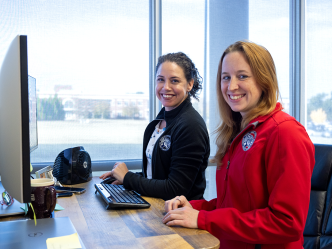The world of finances isn’t always an easy one for students to navigate.
Wendy Habegger, PhD, senior lecturer in the Hull College of Business, suggests several ways college students can improve their financial literacy, even after their collegiate career. Habegger said most don’t have a good grasp of what that is, despite being one of the most foundational building blocks to help students start off on the right foot.
“They should know their credit scores just as quickly as their GPA, and they should protect it just as vigorously,” Habegger said.

Hull College of Business
She also suggests students have a credit card but with the caveat they use it wisely and be sure to pay their bills in a timely fashion. While they might like using cash, having a credit card will start to build a good credit history that they’ll likely need down the road.
“The sooner they get started, the better they are of having good credit when they leave (college),” she added.
When looking at their student loans, there are ways they can be better prepared when they start having to pay them back. During that deferral period, she suggests students really consider what a job may pay. Also, when selecting a payment plan for college loans, make sure it’s something they can make monthly payments on without any problems.
She also said people need to think about public service jobs that may offer loan forgiveness or asking a potential employer about any loan forgiveness programs.
“Some employers out there will offer some sort of that. The military is a good career, and they are happy to be help pay off your student loans. Other businesses may offer that, as well. It can be a good perk on both sides of the table, for the company and student looking for a first-time job.”
 Augusta University
Augusta University



